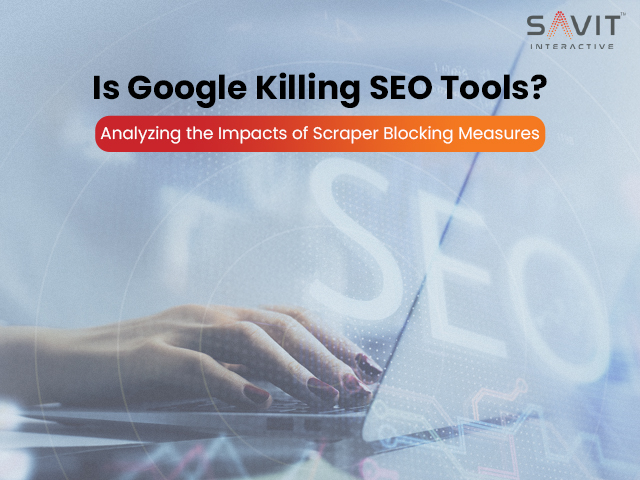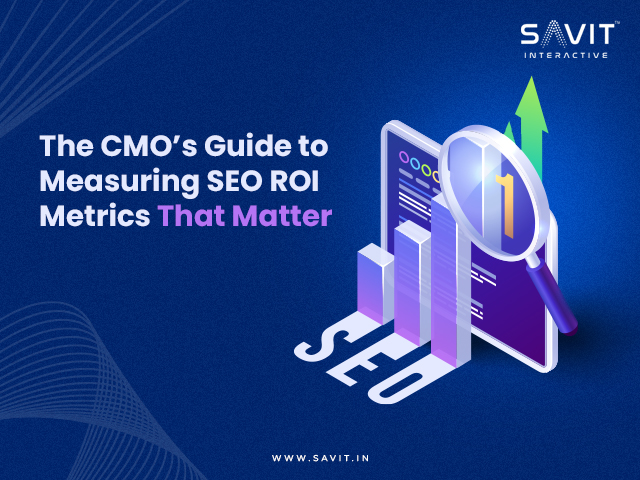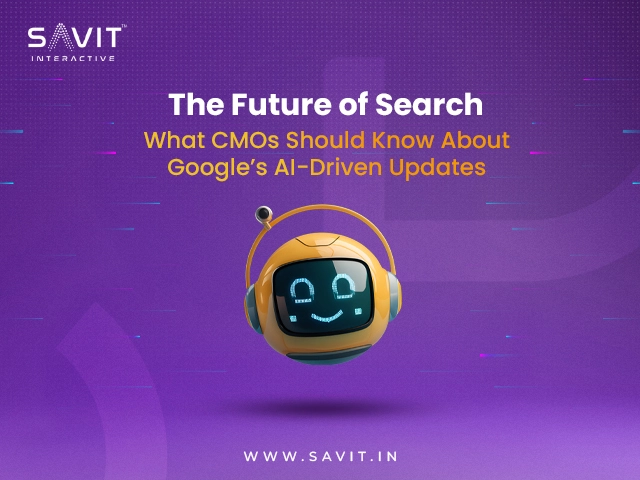~ Due to Google’s ban on search result scraping, rank and keyword tracking businesses are experiencing worldwide downtime.
Global SEO tools have encountered difficulty. Due to Google’s increased control over search result scraping, rank-tracking services like SEMrush have experienced widespread disruptions. The question that remains for digital marketers is: What comes next?
What’s causing the scraping to be blocked?
Google has intensified its efforts to tackle search result scraping, which is the technique that drives a lot of SEO tools. These programs frequently violate Google’s terms of service by extracting keyword data and rankings from Google’s search pages.
Google has now taken the necessary step to prohibit these actions, even though this has been an open secret for years.
According to Google’s guidelines, artificial traffic, such as scraping for rank-checking, degrades user experiences and use up resources. The crackdown uses advanced blocks that target suspicious activity and excessive requests, rendering scraping-dependent tools inoperable.
JavaScript Is Needed for Search Results
Google has made it mandatory to use JavaScript in order to get search results. When JavaScript is deactivated, users or tools get this message:
To continue searching, activate JavaScript. JavaScript is disabled in the browser you are currently using. Turn it on to carry on your search.
This upgrade is a component of Google’s spam and abuse control strategy. Google makes scrapers and automated tools—many of which do not render JavaScript—much more complicated by requiring JavaScript. This strengthens the security of the search environment in conjunction with other strategies like rate-limiting and behaviour monitoring.
SEO Tools Struggle to Keep Up
The SEO community as a whole is feeling the effects. Tools like Scrape Owl and MyRankingMetrics are apparently unavailable, and SEMrush data updates have ceased.
Posts in the SEO Signals Lab group demonstrate the increasing annoyance of users. Also, users on LinkedIn demonstrates consumers’ increasing displeasure
Some tools, like Sistrix and MonitorRank, are unaffected, though. Others have adjusted and started scraping again, such as HaloScan.
This conflicting effect implies that Google’s policies are still being developed, perhaps aimed at particular actions or more significant market participants.
Effect on Agencies and Businesses:
For Businesses: As tools adapt to the new limitations, businesses that depend on SEO insights to stay competitive may experience slower updates, less accurate data, and even higher charges.
This can make it more difficult to assess how well a website performs and develop successful marketing plans.
For Agencies: In order to preserve the precision and promptness of customer deliverables, agencies that offer SEO reporting and analytics now need to come up with other options.
Furthermore, these modifications might compel agencies to spend more on relationships with unaffected tools or custom scraping technology, which would raise operating expenses.
A number of rank-tracking programs, including Semrush, have experienced worldwide outages as a result of Google’s effort to prohibit web scrapers that collect data from its search engine results pages (SERPs).
Professionals have been debating Google’s recent action and its possible effects on SEO tactics. It can result in higher expenses for data extraction in addition to visibly interfering with data tracking systems.
Industry Reactions: Costs and Frustration
The response has been prompt. Social media marketers predict that SEO tool prices will rise in the future.
According to a LinkedIn article, “This move from Google is making data extraction more difficult and expensive.” Users could have to pay more for subscriptions.
A lot of people are demanding a solution. The emotion was encapsulated in Ryan Jones’ tweet:
“Google seems to have made an update last night that blocks most scrapers and many APIs.
Google, just give us a paid API for search results. we’ll pay you instead.”
— Ryan Jones (@RyanJones)
This appeal emphasizes the necessity of finding a respectable, long-term substitute for scraping.
Google’s Challenge: It’s Hard to Stop Scrapers
The procedure of blocking scrapers requires a lot of resources. It’s a game of cat and mouse as scrapers adjust by changing user agents and cycling IP addresses.
The pressure on Google’s systems is increased by its attempts to identify and stop scraping activities. Smaller scrapers or those employing creative techniques, meanwhile, are still avoiding detection.
Why Google Decided to Take Action Against Scraping Now
Why has Google recently stepped up its anti-scraping efforts? Some people think it has to do with the growth of AI technologies, which frequently rely on data that has been scraped.
Others contend that it’s a calculated attempt to steer companies toward possible paid data solutions. Google has not yet made a public statement, so speculation is still possible.
The SEO Landscape’s Ripple Effects
For SEO tools and their users, Google’s actions have caused a significant upheaval. Companies that use these tools have to deal with reporting and strategy issues right away.
This has the potential to change the industry over time in a number of ways:
Cost Increases: Higher scraping expenses could result in higher user subscription bills.
Tool Innovation: Providers may come up with creative ways to get data.
Demand for Paid APIs: One workable option might be a Google API that is paid.
Scraping: A Prolonged Discussion
The topic of scraping has long been controversial. Although it gives marketers vital data, it puts a strain on Google and other platforms.
Scraping has been somewhat accepted in the past, but this action suggests a more stringent attitude. The actions taken by Google may signal a dramatic shift in the sector.
A Way Ahead
The necessity for balance is highlighted by Google’s activities. Businesses want dependable access to data, even though safeguarding its ecology is legitimate.
This vacuum might be filled by a paid API, which would provide equitable access without breaking any rules. Openness and cooperation between Google and the sector are essential.
Looking Ahead: SEO Tool Predictions
Google’s radical changes have put the SEO business at a crossroads, forcing users and tools to reconsider their approaches.
Quick Adaptation: SEO tools are likely to innovate or diversify data sources in a timely manner.
Valid Channels: For safe, regulated data access, Google may introduce paid APIs.
Educated Users: Marketers will have to pick up new skills and modify their tactics.
How to Handle the Shifts
To guarantee continuous insights, adjusting to Google’s anti-scraping policies calls for a proactive strategy and tactical changes.
Diversify Your Resources: To reduce your dependency on a single source, use a variety of tools.
Keep an eye on updates: Remain up to date on tool capabilities and business advancements.
Invest in analytics: By concentrating on reliable analytics systems and first-party data carry out the investing process in analytics.
Try: Investigate original ways to obtain information without scraping.
Promote Solutions: Speak with tool suppliers to insist on dependability and openness.
Important Takeaways
Globally, SEO tools are being disrupted by Google’s crackdown on search result scraping.
While some programs continue to function or adapt, SEMrush and other tools experience downtime.
Although it is technically difficult, blocking scraping complies with Google’s guidelines.
SaaS SEO tool prices could increase, which would affect organizations and marketers.
A sustainable solution might be provided by a clear, paid API.
Recent Update
Many of the tools are operational again. Additionally, a brilliant observation made by Site bulb CEO and co-founder Patrick Hathaway, who noted that this is more likely to be an attack on large language models (LLMs) than keyword tools. He stated:
It is much more likely to be a response to a growing challenge to Google’s hegemony: the perception that LLMs like ChatGPT are a suitable or superior alternative to Google search. For the first time since 2015, Google’s worldwide market share has fallen below 90%, and they will understand why.
Google is safeguarding themselves against LLMs training their data sets on Google’s data by making it harder to access their data at masse.
For decades, SEO tools have been extracting information from Google. As it violates their TOS, Google has always opposed it.
Over the years, they have undoubtedly attempted to make it more challenging in several ways, but this one appears to have had the most significant and pervasive effect.
The timing is simply too obvious. Since practically all LLMs are known to not execute JavaScript, they should have trouble accessing Google search results in the near future.
Presumably, it will only increase the task’s cost and, hence, its viability over time.
The reason for this downtime is that Google does not want LLMs to be able to examine their AI Overviews or search results (or the queries that cause them).
Tools for tracking keywords are merely collateral damage.~ Due to Google’s ban on search result scraping, rank and keyword tracking businesses are experiencing worldwide downtime.
Global SEO tools have encountered difficulty. Due to Google’s increased control over search result scraping, rank-tracking services like SEMrush have experienced widespread disruptions.
The question that remains for digital marketers is: What comes next?



